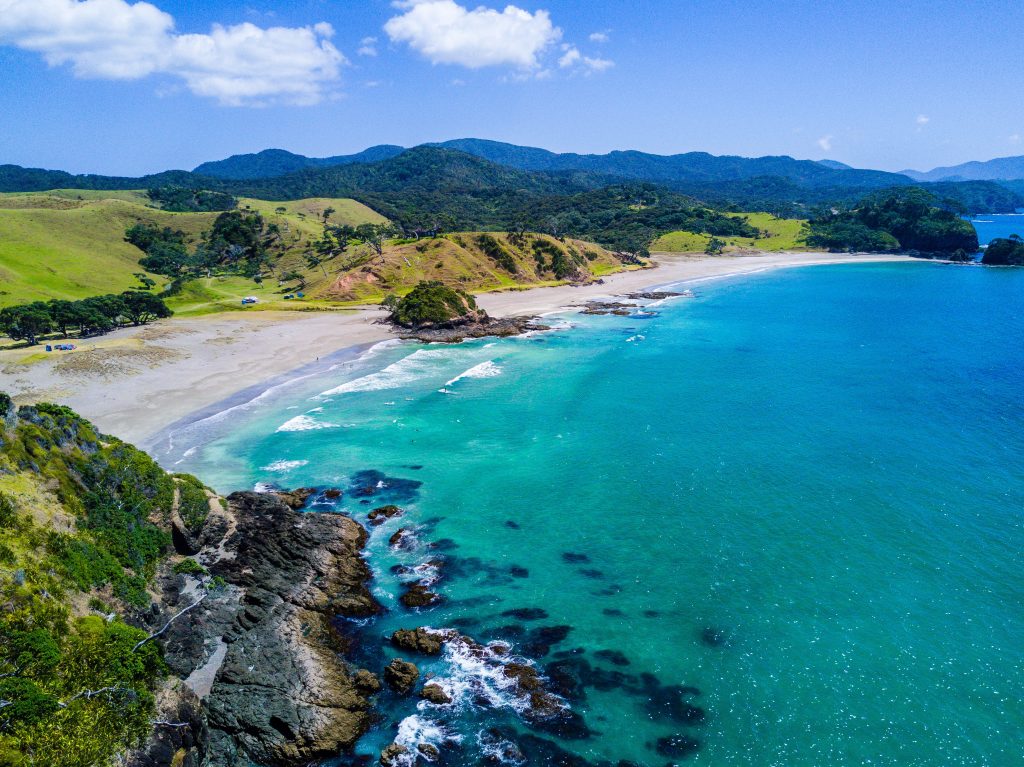Exploring Eco-Friendly and Sustainable Tours in New Zealand for Memorable Honeymoons

Imagine embarking on a picturesque journey with your partner, right after saying your vows, in one of the most naturally beautiful locations in the world – New Zealand. In this article, you’ll explore some of the best eco-friendly and sustainable tours this breathtaking country provides for a truly memorable honeymoon experience. You might already know New Zealand for its stunning landscapes, but wait until you discover the sustainable choices that delicately balance pleasure and responsibility. Get ready to embark on a journey that not only enriches your bond with your significant other but also betters your relationship with Mother Nature.
Understanding Eco-Friendly and Sustainable Tourism
This part of your honeymoon planning guide is dedicated to helping you better understand just what eco-tourism and sustainable tourism are, and why they’re so important.
Introduction to eco-tourism
Eco-tourism is a form of travel that focuses on conservation, education, traveller responsibility and active community participation. It’s about more than just enjoying the natural world, but also preserving it.
Importance of sustainable tourism
Sustainable tourism, on the other hand, refers to the concept of visiting a place and making a positive impact on its environment, society, and economy. It’s about travelling in a way that respects the local people, culture, and natural environment, and giving back to the local community.
How eco-tourism impacts honeymoon experience
When you choose an eco-friendly honeymoon, it means you are creating a meaningful and lasting experience that not only benefits you as a couple, but also the environment and the local communities. It’s a unique chance to form a deeper connection with nature and each other.
Exploring New Zealand as an Eco-Tourism Hub
New Zealand is frequently mentioned as a top destination for eco-tourism. Let’s explore why that is!
Unique biodiversity of New Zealand
One of the reasons New Zealand is such an eco-tourism hub is because of its unique biodiversity. The country is home to a vast range of native birds, marine life and plant species that aren’t found anywhere else in the world.
New Zealand’s efforts towards eco-tourism
New Zealand is also recognised for its significant efforts in eco-tourism. The country has many protected parks and reserves, and is dedicated to preserving its native flora and fauna. Their commitment to protecting the environment has resonated with eco-conscious travellers worldwide.
The popularity of New Zealand among eco-friendly travelers
New Zealand has become highly popular among eco-friendly travellers because of its stunning landscapes, abundant wildlife, and commitment to sustainability. If you’re looking to make your honeymoon as eco-friendly as possible, New Zealand is a great choice.
In-depth Guide to Eco-Friendly Places in New Zealand
Let’s dive in to some New Zealand attractions that are well-known for their eco-friendly practices and incredible natural beauty.
Abel Tasman National Park
Abel Tasman National Park is a gorgeous coastal paradise where you can experience clear turquoise waters and stunning sandy beaches. Plus, with the local focus on sustainability, you’ll find plenty of eco-friendly activities to participate in.
Fiordland National Park
Fiordland National Park is a World Heritage area, and one of the most dramatic landscapes on earth. It’s perfect for couples who love the outdoors, with numerous hiking trails, waterfalls and opportunities to see rare native wildlife.
Rotorua Geothermal Area
Rotorua is a must-visit for its unique geothermal activity. You can explore geysers, hot springs, and mud pools, all in a sustainable way that respects Maori culture and traditions.
Kaikoura Marine Reserve
Kaikoura Marine Reserve is a haven for marine life. You can witness sperm whales, fur seals, albatrosses and occasionally see pod of dolphins which makes it an excellent place for whale watching and bird watching.
Sustainable Activities For Couples in New Zealand
Once you’ve picked your destinations, let’s explore some sustainable activities NZ offers.
Eco-friendly hiking trails
There are countless eco-friendly hiking trails throughout the country. As long as you stay on the marked trails, you can enjoy beautiful landscapes and diverse wildlife without disturbing the natural environment.
Sea-kayaking
Sea-kayaking, especially in Abel Tasman National Park, is a low-impact way to get close to nature and enjoy the stunning coastline.
Bird-watching
New Zealand boasts a unique variety of endangered birds. Bird-watching is a way to learn about these species and understand efforts made to conserve them.
Whale and Dolphin watching
Responsible whale and dolphin watching tours are a great way to appreciate the marine life, as long as they’re carried out in a way that respects the animals and imposes minimal disturbance.
Exploring Maori culture responsibly
Being respectful of the local Maori culture is a critical part of eco-tourism in New Zealand. By attending workshops and guided tours, you can understand Maori history and traditions.

Green Accommodations in New Zealand
Seeking out eco-friendly accommodation is crucial for reducing your honeymoon’s environmental impact.
Eco-lodges
Eco-lodges throughout New Zealand offer luxury and sustainability. They’re often located in beautiful landscapes and aim to minimise their impact on the environment.
Green hotels
Green hotels are popping up all over New Zealand. These hotels aim to save energy and water, reduce waste, and provide a healthy and safe environment for guests and employees.
Farm Stays
For a more rustic experience, consider a farm stay. These types of accommodations offer an authentic taste of rural New Zealand life and a chance to learn about sustainable farming practices.
Holiday parks with sustainable practices
Many holiday parks in New Zealand follow sustainable practices, like recycling or using renewable energy. They are an excellent option for budget-conscious, eco-friendly travelers.
Sustainable Dining Options in New Zealand
When it comes to food, New Zealand offers plenty of sustainable dining options.
Farm-to-table restaurants
Farm-to-table restaurants that source locally grown or produced food not only provide a fresher and healthier dining experience, but also help reduce carbon emissions from transporting food long distances.
Vegan and vegetarian options
New Zealand is also home to many excellent vegan and vegetarian restaurants. By choosing plant-based meals, you’re minimising your carbon footprint and water usage.
Seafood sustainability in New Zealand
New Zealand takes seafood sustainability seriously. The country has strict regulations to ensure that seafood is caught in a sustainable way, and many restaurants proudly serve locally-caught, sustainable seafood.

Eco-Friendly Transportation in New Zealand
Getting around in an eco-friendly manner is also an important part of sustainable tourism.
Public transport options
New Zealand offers a variety of public transport options that can get you to many places while minimizing your carbon footprint.
Green car rentals
If public transport isn’t an option, consider a green car rental. Many car rental companies in New Zealand offer hybrid or electric vehicles that emit fewer greenhouse gases.
Cycling and walking tours
Alternatively, consider exploring your surroundings on foot or by bike. Not only is this the most eco-friendly way to see the sights, it also allows you to truly take in the beauty of your surroundings.
Promoting Conservation During Your Honeymoon
During your honeymoon, you have the opportunity to contribute to conservation efforts.
Supporting local communities
Make an effort to support local businesses and communities during your stay. This can be as simple as buying souvenirs from local artisans, or choosing to eat at local restaurants.
Participating in conservation efforts
There are many conservation projects in New Zealand that welcome assistance from travelers. You could plant a tree, assist with wildlife monitoring, or help clean up a beach.
Minimizing waste and respecting local norms
As a tourist, it’s important to minimize waste and respect local rules and norms. Always remember to leave a place better than you found it!
Precautions to Ensure An Eco-Friendly Honeymoon
While having fun, it’s necessary to take precautions to ensure that your honeymoon is as eco-friendly as possible.
Planning travel carefully
Ensure you plan your travel in a way that minimizes your impact on the environment. This could mean choosing direct flights, using public transport, or travelling during off-peak periods.
Choosing certified eco-tour operators
When booking tours, choose operators that are certified as eco-friendly. These companies make efforts to minimize their impact on the environment, and often contribute to local conservation efforts.
Following guidelines from local environmental organizations
Local environmental organizations often provide guidelines for tourists. Following these can help you have a fun, enjoyable honeymoon that’s also kind to the environment.
Packaging Your Eco-Honeymoon Experience
With all this information, you should have a good idea of how to package your eco-friendly honeymoon in New Zealand.
Sample itinerary for an eco-friendly honeymoon
Use all the information in this guide to craft your own eco-friendly honeymoon itinerary. Remember to balance relaxation with adventure!
Useful resources for planning
There are countless online resources to assist you in planning your eco-friendly honeymoon. Look for resources from reputable tourism boards, environmental organizations, and travel bloggers who focus on sustainable travel.
Choosing an eco-friendly travel agent
If you need assistance planning your honeymoon, consider working with an eco-friendly travel agent. They have the knowledge and expertise to help you make sustainable choices throughout your journey.
So there you have it! We hope this guide has been helpful in planning your eco-friendly honeymoon in New Zealand. You’re not just planning a holiday, but a once-in-a-lifetime experience that also contributes positively to the environment. Remember, every little step counts!